Science worksheets activities for Ages 4-7
15 filtered results
-
From - To
Discover a world of exploration with our engaging science worksheets for ages 4-7! Designed to ignite curiosity and foster a love for learning, these activities introduce young learners to fundamental scientific concepts in a fun and accessible manner. From understanding the basics of plants and animals to simple experiments, our worksheets provide interactive opportunities to enhance observational skills and critical thinking. Each activity is aligned with early childhood education standards, ensuring kids not only enjoy themselves but also grasp essential knowledge. Perfect for parents, teachers, or after-school programs, these resources lay the groundwork for future scientific inquiry. Explore the exciting world of science today!


Matter: Assessment 1 Worksheet


Force and Interactions: Assessment 1 Worksheet
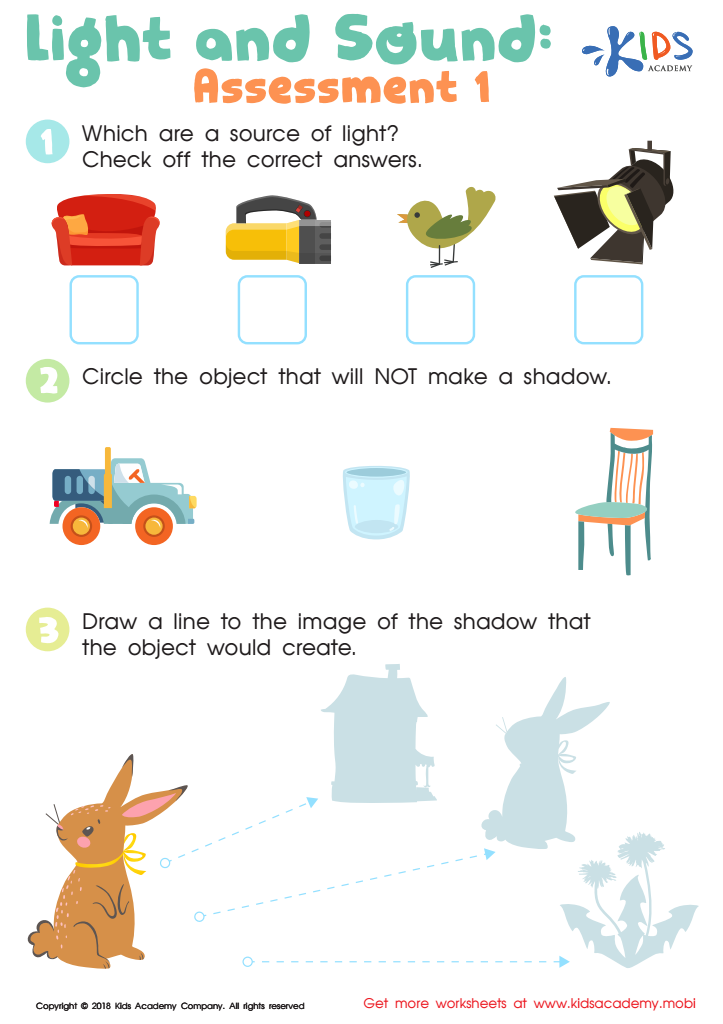

Light and Sound: Assessment 1 Worksheet


Space: Assessment 1 Worksheet


Ecosystems: Assessment 1 Worksheet
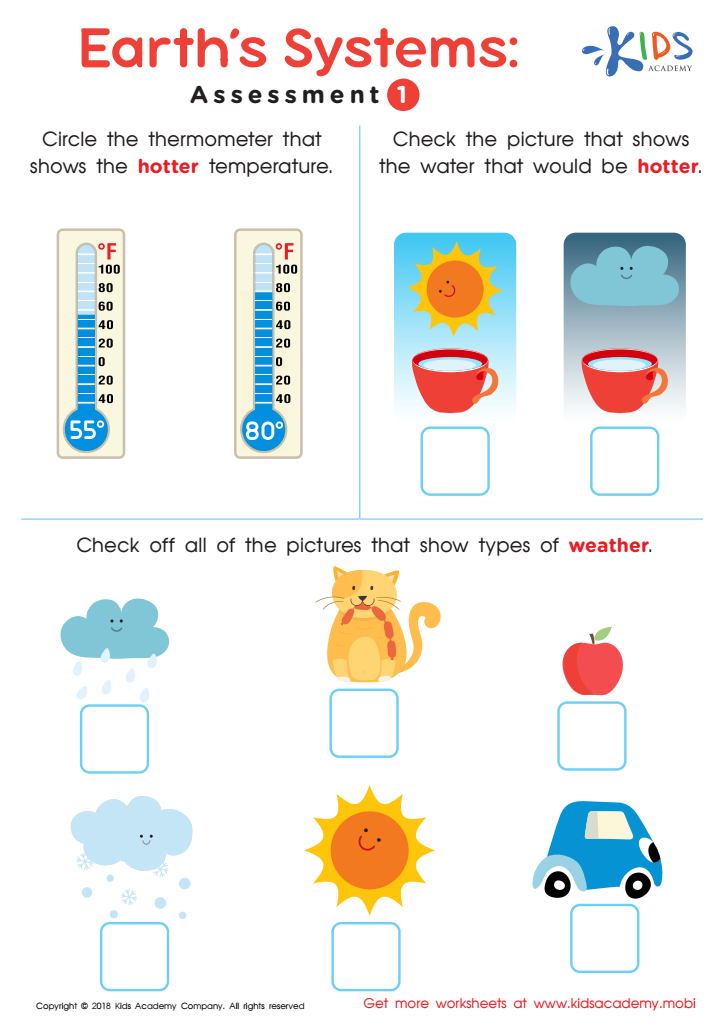

Earth's Systems: Assessment 1
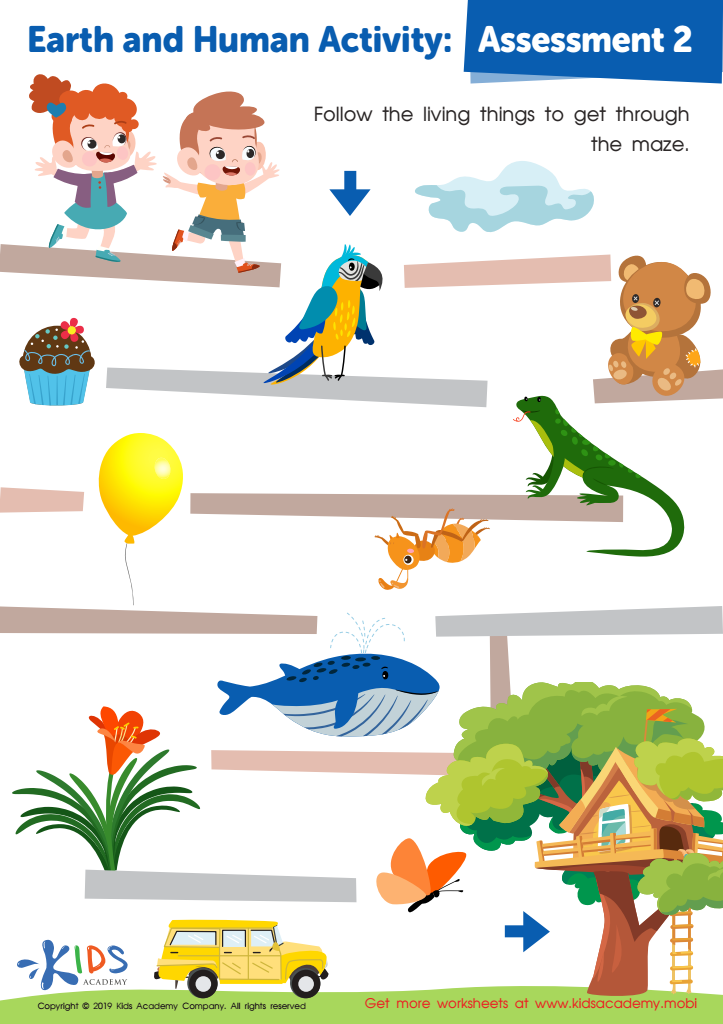

Earth and Human Activity: Assessment 2 Worksheet


Light and Sound: Assessment 2 Worksheet
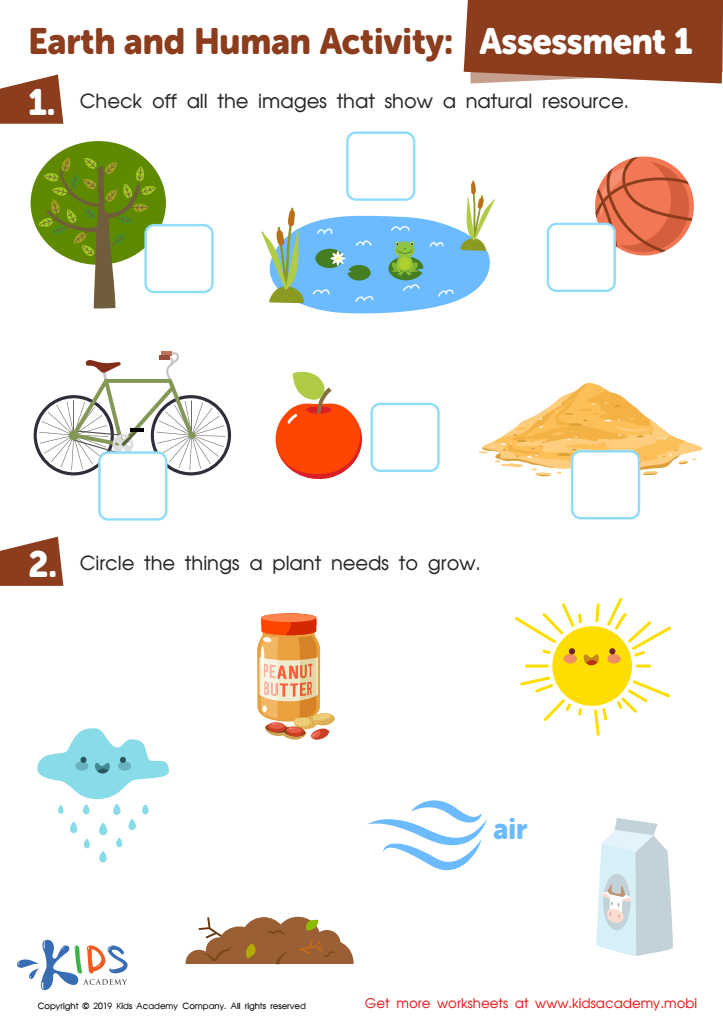

Earth and Human Activity: Assessment 1 Worksheet
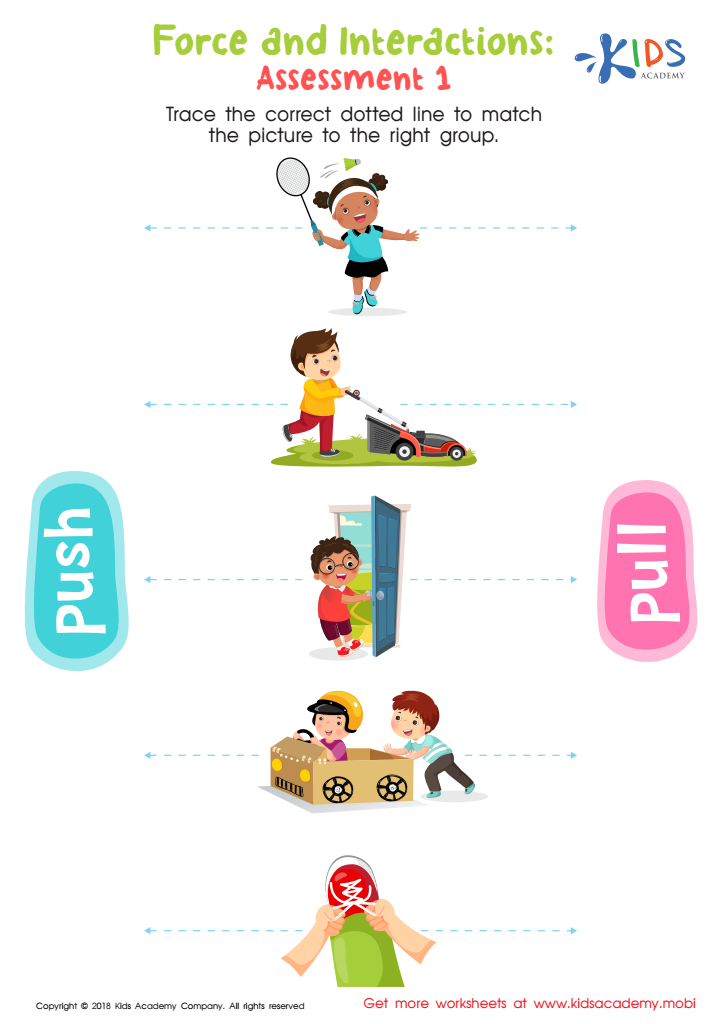

Force and Interactions: Assessment 2 Worksheet


Animals and Plants: Assessment 2 Worksheet
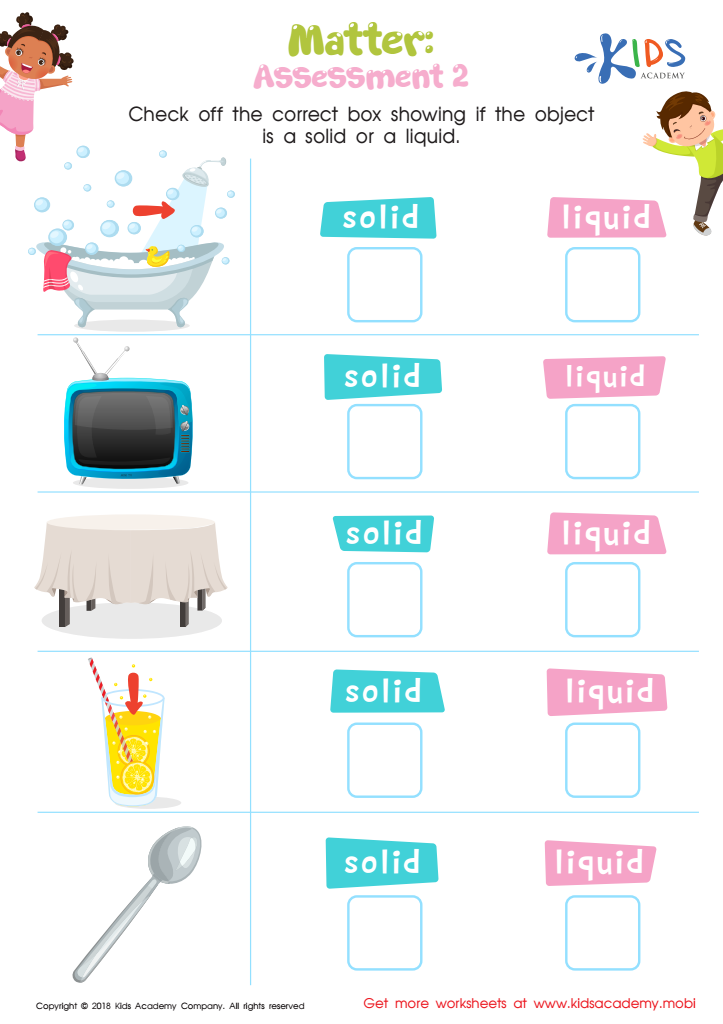

Matter: Assessment 2 Worksheet


Ecosystems: Assessment 2 Worksheet


Space: Assessment 2 Worksheet


Animals and Plants: Assessment 1 Worksheet
Science activities for children ages 4-7 are vital for several reasons, making it essential for parents and teachers to prioritize them. Firstly, this stage of development is crucial for sparking curiosity and fostering a love for discovery. Young children are naturally inquisitive, and engaging in hands-on science experiences helps satisfy their questions about the world around them.
Additionally, science activities promote critical thinking and problem-solving skills, essential components for lifelong learning. By participating in experiments and exploring concepts such as cause and effect, children begin to develop a scientific mindset.
Moreover, these activities support other areas of development, including cognitive, social, and emotional growth. Collaborative projects encourage teamwork and communication, while engaging children's imaginations enhances creativity.
Science education at this age also lays the foundation for later academic success, as early exposure builds confidence and knowledge in the subject. Furthermore, incorporating environmental education instills a sense of stewardship in young learners, encouraging them to care for their planet.
Overall, prioritizing science activities fosters a rich, interdisciplinary learning experience that nurtures well-rounded individuals, preparing them for future challenges in an increasingly complex world.
 Assign to My Students
Assign to My Students




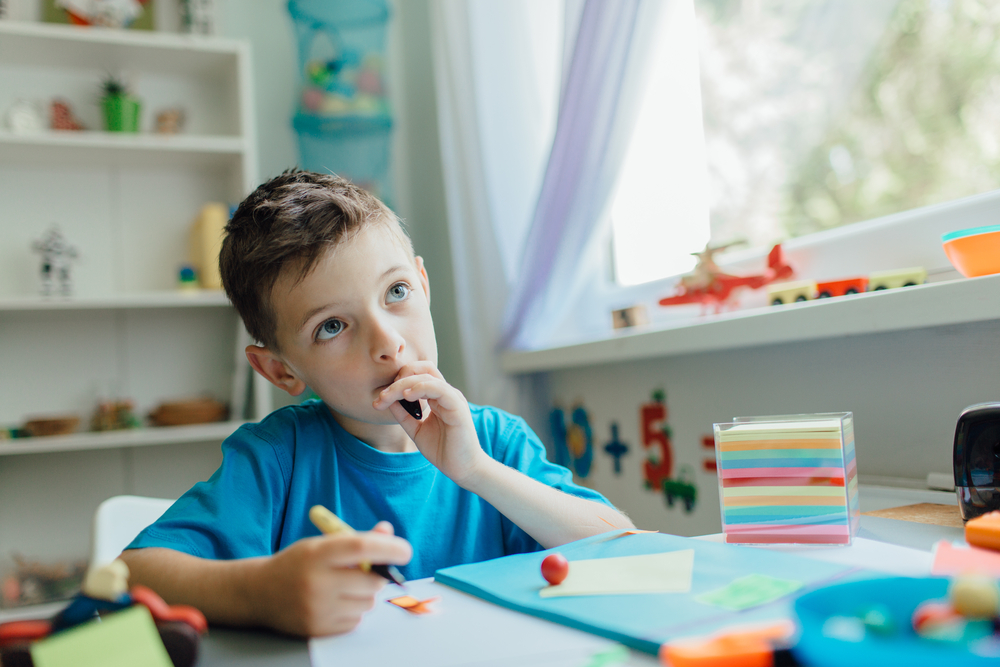

.jpg)








